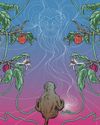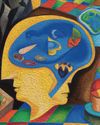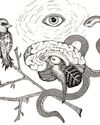
Does the self reside in the soul, in the body, or in some combination of both? It’s a question philosophers have long debated. However, one philosopher, John Locke (1632-1704), argued that the self resides in memory. In what follows I will give an overview of the arguments that led him to this conclusion, and consider some of the objections critics have raised against Locke’s account of the self, in particular his reducing the self to memory. I will conclude that Locke does not only reduce the self to memory, but to internal memory. In doing so, he puts himself on a slippery slope toward idealism, despite his general common-sense empiricism.
Identity Principles
Before delving into Locke’s position on personal identity, it will be helpful to consider his principles regarding the identity or sameness of things in general. In his Essay Concerning Human Understanding (1690), Locke offers us two main principles in determining the identity or unity of things. One is the time and location principle (p.297): at any given time, one thing can exist at one place only. The same thing cannot possibly exist in two or more places at the same time. Suppose you see a chair in the front yard right at the moment. At the same time, you also see an identical chair five meters away. Despite looking identical, these two items being in different locations at the same time make you conclude that these are separate things. However, if you happened to see only one chair in the front yard in the morning, and two hours later you saw an identical chair in the backyard, you could easily assume that it’s the same chair you’d seen in the front yard in the morning. Someone possibly moved it. Locke concludes:
Esta historia es de la edición August/September 2023 de Philosophy Now.
Comience su prueba gratuita de Magzter GOLD de 7 días para acceder a miles de historias premium seleccionadas y a más de 9,000 revistas y periódicos.
Ya eres suscriptor ? Conectar
Esta historia es de la edición August/September 2023 de Philosophy Now.
Comience su prueba gratuita de Magzter GOLD de 7 días para acceder a miles de historias premium seleccionadas y a más de 9,000 revistas y periódicos.
Ya eres suscriptor? Conectar

Anselm (1033-1109)
Martin Jenkins recalls the being of the creator of the ontological argument.

Is Brillo Box an Illustration?
Thomas E. Wartenberg uses Warhol's work to illustrate his theory of illustration.

Why is Freedom So Important To Us?
John Shand explains why free will is basic to humanity.

The Funnel of Righteousness
Peter Worley tells us how to be right, righter, rightest.

We're as Smart as the Universe Gets
James Miles argues, among other things, that E.T. will be like Kim Kardashian, and that the real threat of advanced AI has been misunderstood.

Managing the Mind
Roger Haines contemplates how we consciously manage our minds.

lain McGilchrist's Naturalized Metaphysics
Rogério Severo looks at the brain to see the world anew.

Love & Metaphysics
Peter Graarup Westergaard explains why love is never just physical, with the aid of Donald Davidson's anomalous monism.

Mary Leaves Her Room
Nigel Hems asks, does Mary see colours differently outside her room?

From Birds To Brains
Jonathan Moens considers whether emergence can explain minds from brains.